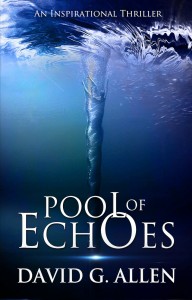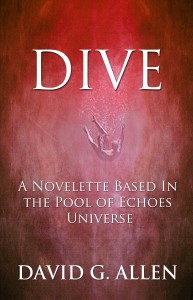You ever spend time on an event for a specific reason, and then get something completely different out of it?
I came to the ReWrite conference last week expecting to get a lot of tips on how to improve on marketing, and perhaps figure out when a traditional publishing deal would be worth my while.
What happened instead is that I ran into my people.
You know, your people? A group you can be yourself around?
If I’m lucky I develop friendships with 1-2 of those kinds of people per year.
Imagine running into 100 of them in 2 days.
Esther Fedorkevich of the Fedd Agency set a strong, indie-friendly tone in spite of her traditional publishing background. The feud between indies and traditional publishers is fading fast, and she is definitely part of the solution in that area. Rest assured, I still hammered her employees with ‘Audit the Fed’ jokes.
Personally, as long as I live in a relatively free part of the world, I’ll use whichever route achieves the goals that matter to me, as long as those decisions are legal, moral, and ethical.
Traditional? Sure, why not?
Indie? Sure, why not?
Keynote speaker was Ted Dekker, who wrote the Circle series, Thr3e (also a movie), and many other bestselling novels.
People who stood on stage and said things
Like the subtitle? The tone of the festival was that all authors are equally important, because even the top selling folks were at one point learning the basics. And people learning the basics are just like the top sellers, traveling on the journey from where they are to where they want to be. It was a judgment-free zone, and even the major players were in the audience taking notes, just like everyone else. That is some real ‘walking the talk’.
At the risk of leaving out any names, or name-dropping, here were some other panelists and attendees:
- Mary DeMuth (@marydemuth)
- James Rubart (@jameslrubart – author and victim of kindle-spying by yours truly)
- SandiKrakowski (@sandikrakowski – social media kraken, and founder of the #BEMORE movement)
- Kevin Kaiser (@1ktruefans)
- Rusty Shelton (@rustyshelton of Shelton Interactive.)
- Claire Diaz-Ortiz (@Claire – yeah, one word. She’s a founding employee at twitter, and knows a lot about it.)
- Susan May Warren (@susanmaywarren and susanmaywarren.com)
- Chad Allen (@chadrallen at ChadRAllen.com)
- Ruth Soukup (@ruthsoukup of Livingwellspendingless.com)
- Rachelle Dekker (if that last name sounds familiar, it should – she’s releasing her first traditionally published book later this year)
- George Barna (@barnagroup of the Barna Group.)
- Mark Batterson (@markbatterson of The Prayer Circle)
Takeaways
Here are some lessons that anyone can take with them, writer or not:
“When you love your neighbor as yourself, you love yourself, because we are one.” – Ted Dekker
“Everything you do in life will flow out of who you are…rewrite what you believe about yourself.”
“Do not despise obscurity” – Mary DeMuth
On gurus and how following their checklists often fails to bring you the success you seek. “What if the ‘Guru’s’ advice works?! You might risk pointing to them or yourself rather than to God.” – Mary DeMuth
Just because God is in something, that doesn’t necessarily mean it will prosper the way we want it to.
“It’s difficult to read the label (your qualities) when you’re standing inside the bottle.” – James Rubart
“Culture is a gathering of people around a common idea, item, or belief.” [that is the goal of social media] – Sandi Krakowski
“Nobody [successful authors interviewed] could identify a single moment of breakthrough… they only noticed breakthrough after the fact.” – Esther Fedorkevich
All the moments pushing the flywheel led to the breakthrough.
“Think less like an author [on PR] and more like a journalist for a news outlet.” In the end, that’s what social media is, and our job as creatives or businesspeople or writers is to report on what’s making the most impact in our respective subject matters. – Randy Shelton
Don’t put your identity in your work. If you live by the sword, you die by the sword (paraphrase of Ted Dekker). On a personal note, I noticed you can replace ‘Sword’ with…well…anything. Also notice if you live by God, you die by God, but since He’s the source of salvation it is the only way that death turns into an illusion.
Chad Allen showed me something called the living systems theory, which in my opinion is one of the reasons that change can be so hard sometimes. Living Systems Theory = when you change 1 or 2 parts of a system, the whole system changes.
“If you spend your whole life teaching a fish how to climb a tree, the fish will spend away its whole life thinking it’s stupid” – Kevin Kaiser
So, should you go, if you’re a writer?
I’d say yes, if only to get your head in the right place. In the future, I’d like to see more case studies and tactical stuff, but it is what it is. If the above quotes helped your mind in any concrete way, look into it the next time the event comes around.








